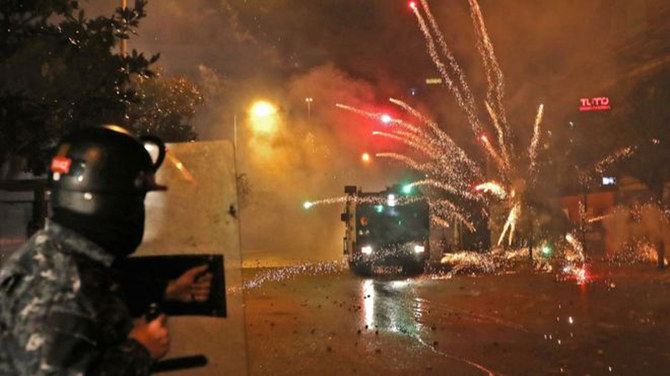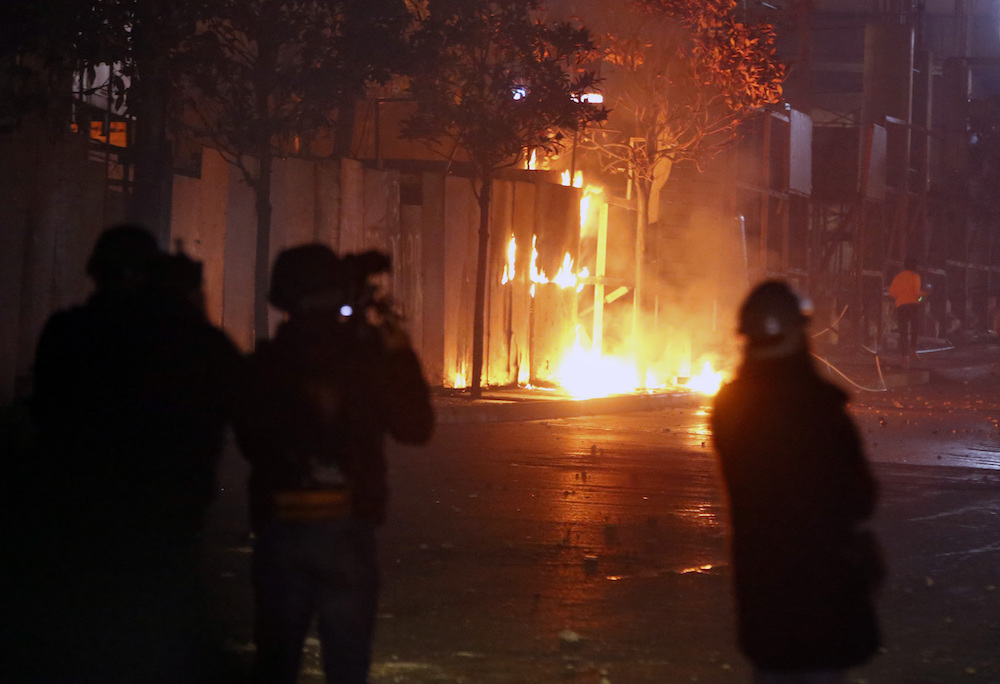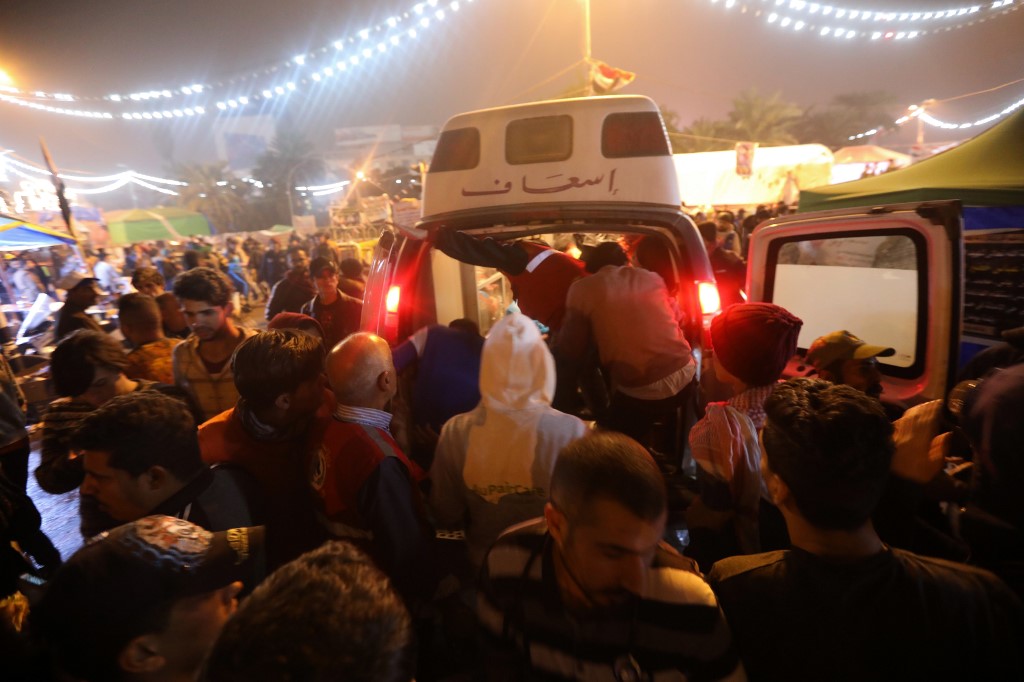Beirut left reeling after online video sparks violent clashes
BEIRUT: Lebanon’s capital was rocked by a third night of violence after an online video containing sectarian insults sent hundreds of protesters onto the streets to vent their anger at police and security forces.
The protesters, supporters of the Hezbollah and Amal movements, set cars ablaze, and threw stones and fireworks at police, who used tear gas and water cannon to disperse them.
Angered by the video, protesters from Beirut’s southern suburb of Khandak El Ghamik used social media platforms late on Monday to issue calls to gather in the capital’s squares, where they again targeted anti-government demonstrators.
It was the third consecutive night of violence in the capital following clashes between anti-government protesters and police on Saturday and Sunday.
Riot police and army personnel responded to the attacks by firing dozens of tear gas canisters, wounding several people, including security personnel. More than 20 people were rushed to hospital after the clashes.
Appeals for calm by Amal and Hezbollah leaders failed to stop supporters from confronting police and security forces.
A local religious leader, Sheikh Mohammed Kazem Ayyad, appeared on television from the Khandak El Ghamik mosque urging protesters to “leave the street.”
Youssef Khayat, manager of the Central Monroe Hotel close to the site of the clashes, told Arab News: “Our occupancy rate has fallen to zero. In order to survive, we have to reduce salaries and cut the number of employees. When the confrontations begin in the evening, we lock the doors and stay inside.”
Anger over the incident spread to the cities of Sidon and Nabatieh, where young men destroyed protesters’ tents in Elia Square and attacked a number of people.
Safety fears forced most schools in Sidon to close on Tuesday while the army carried out patrols throughout the city.
Hezbollah and Amal supporters also destroyed anti-government protesters’ tents in Nabatieh.
Nora Farhat, who runs a women’s beauty salon, said the attacks were expected. “Targeting Hezbollah and Amal leaders all the time is bound to cause an explosion on the street. The protesters should accommodate other people, not provoke them. It is true that the protesters are not responsible for the inflammatory video, but everybody is tense.”
In an attempt to calm the political situation, caretaker Prime Minister Saad Hariri visited Parliament Speaker Nabih Berri — the first meeting between the two since the deadlock over forming a replacement government.
A statement issued after the meeting said that “it is imperative that the Lebanese demonstrate awareness and vigilance at this stage, preserve civil peace and national unity, and not be drawn into the strife that some are working hard to promote.”
Berri and Hariri said that “the need to accelerate the formation of the government has become more than urgent.”
Meanwhile, the Imam of Al-Basta mosque, Sheikh Ali Bitar, visited the Khandak El Ghamik mosque to meet Sheikh Ayyad. “We came to assure all Lebanese and the Muslim world that we are one body. We condemn the provocative video,” Sheikh Bitar said.
Beirut’s Public Prosecution Department planned to take action against the man who posted the online video but it later emerged he is living in Greece. The man’s uncle said on television: “The family has nothing to do with the words of my nephew.”
Later the man posted a second video apologizing for his actions.



Lebanese leaders ‘trying to buy time,’ warns UN envoy KubisTechnocratic government key to Lebanon’s woes, former PM claims





